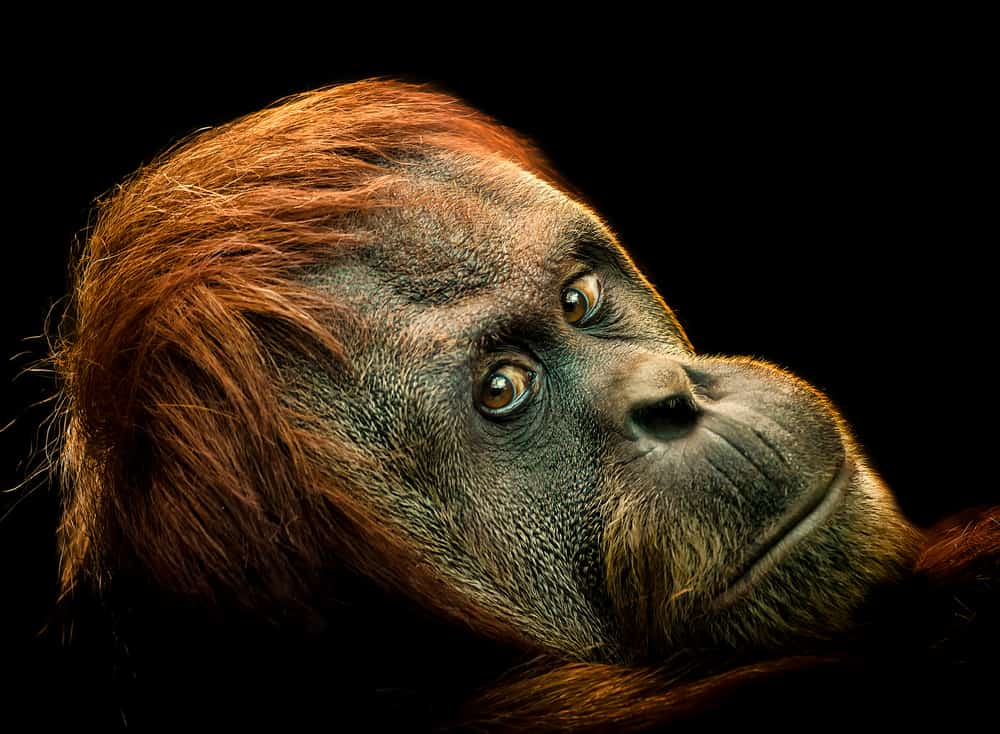
“Ask the beasts and they will teach you.” Job 12:7
I finished reading Elizabeth A. Johnson’s Ask the Beasts: Darwin and the God of Love the day before I went to see Darren Aronofsky’s Noah. I loved them both. My appreciation for Noah was heightened by Johnson’s reflections that were circulating through my mind.
I loved Noah first and foremost because it allowed a Biblical myth to be just that… a myth of epic Tolkien proportions! It didn’t succumb to the modern trend of rationalizing everything in Scripture to fit our sensibilities. Embracing the full power of myth, Aronofsky unleashes the primeval vitality of mythic symbolism. The patriarchs in the movie are wizards, priests, shamans, as they were in most primitive societies. The Watchers are the fallen angels of 1 Enoch and Jubilees, active and influential in the world, and the God of Noah is the biblical Creator God in the primitive understanding appropriate to Noah’s time.
But I also loved Noah because the central plot of the story asks my own question in stark language: Should we really pay attention to the beasts when human life is at stake? When abortion is the greatest social justice issue of our time? When war threatens the dignity of so many human lives?
The answer was obvious for Noah, but not for me, even after finishing Johnson’s book. I felt the plot stretching me to the tearing point: Is it plausible that Noah might have thought that God wanted to destroy all creatures that have the capacity to sin (humans)? That this was the purpose of the flood? Was Noah supposed to let his race die out in order to safeguard and protect other living creatures?
Yes, it’s plausible. Primitive man had a much more profound respect for nature than do moderns. And God does say that he “regretted making human beings on the earth” (Gen 6:6). But of course Noah gets God’s will wrong. But so too does Tubalcain in a scene from the movie when he holds out a piece of meat to Ham and says something to the effect of “the world is yours to subdue: seize it!” It’s not one or the other. It’s never that simple.
Noah works and Ask the Beasts works because they don’t wedge us into simple solutions. The problem is so damn complex.

There are no simple solutions
Let’s look at the problem: The Holy Spirit, professed in the Nicene Creed, is the “Lord, the Giver of Life.” The fact that life, all life, has value is central. Johnson encourages us to look at numerous biblical passages that place human beings within rather than above creation:
- Job. In Job 12 we are encouraged to “ask the beasts and they will teach you; the birds of the air, and they will tell you.” Job places humans and other living creatures together in poetic parallelism: “In his hand is the life of every living thing, and the breath of every human being.” Job’s sensitivity to creation continues all throughout the book, making him out to be a kindred spirit to the Noah of Aronofsky’s movie. God tells Job to “look at behemoth, which I made just as I made you” (Job 40:15). The wild animals mentioned all throughout Job – hawks, mountain goats, wild oxen, leviathan – are not made for humans to eat, are not even made for human relationship. They live their own lives with no reference to us – like the vast majority of species on our planet.
- Psalm 104. This is one of the most beautiful nature songs ever written, all about how lions “seek their food from God” and the creation of leviathan to be God’s playmate. Verse 24 summarizes: “How varied are your works, Lord! In wisdom you have made them all; the earth is full of your creatures.” This is Noah’s psalm; this is his creation. All creatures praise God simply by being themselves. God brings forth plants from the earth for humans to eat (Gen 1:16; Psalm 104:14), but they are not to touch the animals (just as was the case with Noah until Gen 9:3). In this psalm, yes, humans are exceptional. But they are exceptional when they come on the scene in verse 35 only because they are the only ones in creation who are wicked! And so the Psalmist feels the need to end his psalm with the prayer: “May sinners vanish from the earth.” Sound like Noah’s prayer in the movie?
- Genesis 2-3. In this second, older creation story, animals are created, not for human beings to exercise dominion over, but to meet human relational needs. They are created with the same breath of life as human beings.
And the list of scriptures goes on and on. Johnson urges us to be latter day Noahs, and the Church another Noah’s Ark, not only according to the traditional human-centered ways, but also by once again saving animal species from helpless destruction.
Of course extinction is a part of life. The extinction of the dinosaurs opened up niches for smaller mammals and ultimately for us to evolve. 98% of all previously existing species have gone extinct – and not as a result of human actions.
Yet while the natural rate of mammalian extinction is 1 every 200 years, because of human exploitation, 89 mammalian species have gone extinct since 1600 CE. 169 are listed as endangered. Species that took millions of years to evolve will never return. One quarter of the worlds animals and plants are likely on the path to extinction within the next 100 years.
But do we have an irreducible contradiction here? Noah and Psalm 104 vs. Tubalcain and Genesis 1:28? Respect vs. domination? Animals vs. human beings? Vegetarians vs. meat eaters?
No, there is no ultimate contradiction. This is not a zero sum game. Tubalcain was wrong, but so was Noah. Perhaps what we need, rather, is a new attitude, an attitude fostered by a deeper sense of the Holy Spirit active throughout the living world in ways we do not see or understand. I know of no better description of this new attitude than the words of Wendell Berry:
To live we must daily break the body and shed the blood of Creation. When we do this knowingly, lovingly, skillfully, reverently, it is a sacrament. When we do it ignorantly, greedily, clumsily, destructively, it is a desecration. In such a desecration we condemn ourselves to spiritual and moral loneliness, and others to want.
Modern day Noahs, urges Johnson, are called to embrace an “earth-affirming asceticism.” If “the ecological crisis is a moral issue,”1 we need to embrace an “asceticism practiced with an eye for the good of other species,” an asceticism that challenges people to live more simply.
Nor is there any opposition between social justice and ecological justice. They are two sides of the same coin.

Two sides of the same coin
Yes, I grew up making fun of tree huggers and environmentalists. I’ve had to listen with open mind to Pope Francis’ admonition to “respect each of God’s creatures and respect the environment in which we live.” The problem is not a fiction, as the Right often claims. Nor is it the result of the overpopulation of poor nations, as the Left often claims. As Johnson astutely points out:
A comfortable life for average persons in affluent nations contributes as much if not more to environmental degradation than overpopulation in poorer nations.
It is not a zero sum game. We’re not called to choose from either the Left or the Right. We’re not called to give up the pressing human issues of our time: the fight against abortion, for example, or the push for comprehensive immigration reform. We are called as “average persons” in an affluent nation to “ask the beasts” how to “knowingly, lovingly, skillfully, reverently” break the body and shed the blood of creation.
- Pope John Paul II, World Day of Peace, 1990. ↩


